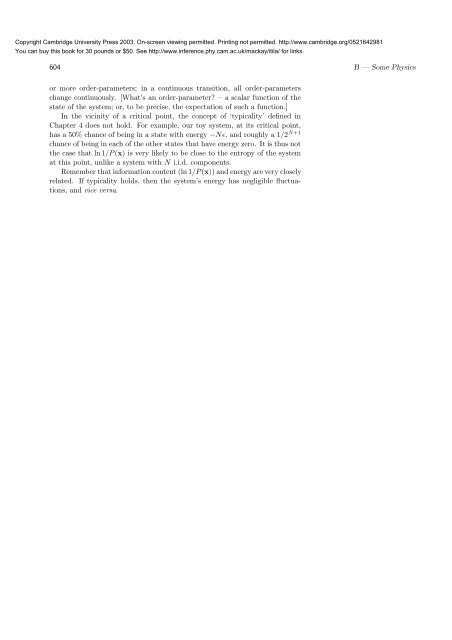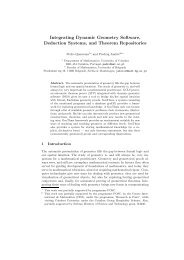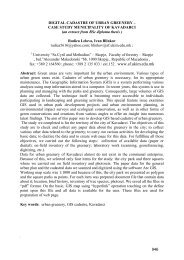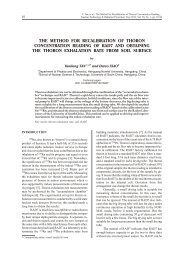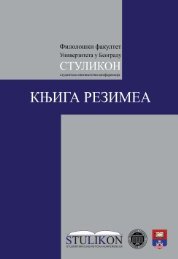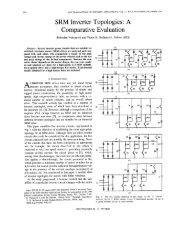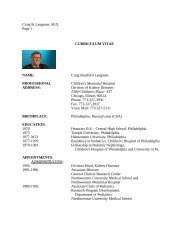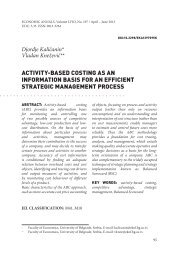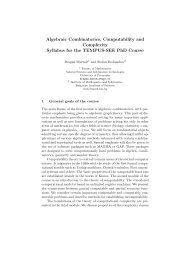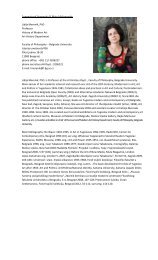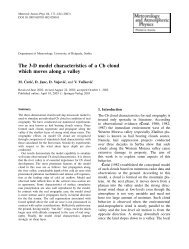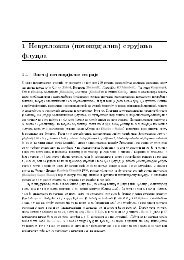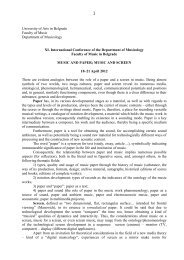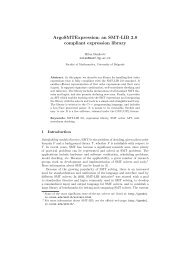- Page 1 and 2:
Copyright Cambridge University Pres
- Page 3 and 4:
Copyright Cambridge University Pres
- Page 5 and 6:
Copyright Cambridge University Pres
- Page 7 and 8:
Copyright Cambridge University Pres
- Page 9 and 10:
Copyright Cambridge University Pres
- Page 11 and 12:
Copyright Cambridge University Pres
- Page 13 and 14:
Copyright Cambridge University Pres
- Page 15 and 16:
Copyright Cambridge University Pres
- Page 17 and 18:
Copyright Cambridge University Pres
- Page 19 and 20:
Copyright Cambridge University Pres
- Page 21 and 22:
Copyright Cambridge University Pres
- Page 23 and 24:
Copyright Cambridge University Pres
- Page 25 and 26:
Copyright Cambridge University Pres
- Page 27 and 28:
Copyright Cambridge University Pres
- Page 29 and 30:
Copyright Cambridge University Pres
- Page 31 and 32:
Copyright Cambridge University Pres
- Page 33 and 34:
Copyright Cambridge University Pres
- Page 35 and 36:
Copyright Cambridge University Pres
- Page 37 and 38:
Copyright Cambridge University Pres
- Page 39 and 40:
Copyright Cambridge University Pres
- Page 41 and 42:
Copyright Cambridge University Pres
- Page 43 and 44:
Copyright Cambridge University Pres
- Page 45 and 46:
Copyright Cambridge University Pres
- Page 47 and 48:
Copyright Cambridge University Pres
- Page 49 and 50:
Copyright Cambridge University Pres
- Page 51 and 52:
Copyright Cambridge University Pres
- Page 53 and 54:
Copyright Cambridge University Pres
- Page 55 and 56:
Copyright Cambridge University Pres
- Page 57 and 58:
Copyright Cambridge University Pres
- Page 59 and 60:
Copyright Cambridge University Pres
- Page 61 and 62:
Copyright Cambridge University Pres
- Page 63 and 64:
Copyright Cambridge University Pres
- Page 65 and 66:
Copyright Cambridge University Pres
- Page 67 and 68:
Copyright Cambridge University Pres
- Page 69 and 70:
Copyright Cambridge University Pres
- Page 71 and 72:
Copyright Cambridge University Pres
- Page 73 and 74:
Copyright Cambridge University Pres
- Page 75 and 76:
Copyright Cambridge University Pres
- Page 77 and 78:
Copyright Cambridge University Pres
- Page 80 and 81:
Copyright Cambridge University Pres
- Page 82 and 83:
Copyright Cambridge University Pres
- Page 84 and 85:
Copyright Cambridge University Pres
- Page 86 and 87:
Copyright Cambridge University Pres
- Page 88 and 89:
Copyright Cambridge University Pres
- Page 90 and 91:
Copyright Cambridge University Pres
- Page 92 and 93:
Copyright Cambridge University Pres
- Page 94 and 95:
Copyright Cambridge University Pres
- Page 96 and 97:
Copyright Cambridge University Pres
- Page 98 and 99:
Copyright Cambridge University Pres
- Page 100 and 101:
Copyright Cambridge University Pres
- Page 102 and 103:
Copyright Cambridge University Pres
- Page 104 and 105:
Copyright Cambridge University Pres
- Page 106 and 107:
Copyright Cambridge University Pres
- Page 108 and 109:
¥¡¥¡¥¡¥¡¥¡¥¡¥¡¥¡¥
- Page 110 and 111:
Copyright Cambridge University Pres
- Page 112 and 113:
Copyright Cambridge University Pres
- Page 114 and 115:
Copyright Cambridge University Pres
- Page 116 and 117:
Copyright Cambridge University Pres
- Page 118 and 119:
Copyright Cambridge University Pres
- Page 120 and 121:
Copyright Cambridge University Pres
- Page 122 and 123:
Copyright Cambridge University Pres
- Page 124 and 125:
Copyright Cambridge University Pres
- Page 126 and 127:
Copyright Cambridge University Pres
- Page 128 and 129:
Copyright Cambridge University Pres
- Page 130 and 131:
Copyright Cambridge University Pres
- Page 132 and 133:
Copyright Cambridge University Pres
- Page 134 and 135:
Copyright Cambridge University Pres
- Page 136 and 137:
Copyright Cambridge University Pres
- Page 138 and 139:
Copyright Cambridge University Pres
- Page 140 and 141:
Copyright Cambridge University Pres
- Page 142 and 143:
Copyright Cambridge University Pres
- Page 144 and 145:
Copyright Cambridge University Pres
- Page 146 and 147:
Copyright Cambridge University Pres
- Page 148 and 149:
Copyright Cambridge University Pres
- Page 150 and 151:
Copyright Cambridge University Pres
- Page 152 and 153:
Copyright Cambridge University Pres
- Page 154 and 155:
Copyright Cambridge University Pres
- Page 156 and 157:
Copyright Cambridge University Pres
- Page 158 and 159:
Copyright Cambridge University Pres
- Page 160 and 161:
Copyright Cambridge University Pres
- Page 162 and 163:
Copyright Cambridge University Pres
- Page 164 and 165:
Copyright Cambridge University Pres
- Page 166 and 167:
Copyright Cambridge University Pres
- Page 168 and 169:
Copyright Cambridge University Pres
- Page 170 and 171:
Copyright Cambridge University Pres
- Page 172 and 173:
Copyright Cambridge University Pres
- Page 174 and 175:
Copyright Cambridge University Pres
- Page 176 and 177:
Copyright Cambridge University Pres
- Page 178 and 179:
Copyright Cambridge University Pres
- Page 180 and 181:
Copyright Cambridge University Pres
- Page 182 and 183:
Copyright Cambridge University Pres
- Page 184 and 185:
Copyright Cambridge University Pres
- Page 186 and 187:
Copyright Cambridge University Pres
- Page 188 and 189:
Copyright Cambridge University Pres
- Page 190 and 191:
Copyright Cambridge University Pres
- Page 192 and 193:
Copyright Cambridge University Pres
- Page 194 and 195:
Copyright Cambridge University Pres
- Page 196 and 197:
Copyright Cambridge University Pres
- Page 198 and 199:
Copyright Cambridge University Pres
- Page 200 and 201:
Copyright Cambridge University Pres
- Page 202 and 203:
Copyright Cambridge University Pres
- Page 204 and 205:
Copyright Cambridge University Pres
- Page 206 and 207:
Copyright Cambridge University Pres
- Page 208 and 209:
Copyright Cambridge University Pres
- Page 210 and 211:
Copyright Cambridge University Pres
- Page 212 and 213:
Copyright Cambridge University Pres
- Page 214 and 215:
Copyright Cambridge University Pres
- Page 216 and 217:
Copyright Cambridge University Pres
- Page 218 and 219:
Copyright Cambridge University Pres
- Page 220 and 221:
Copyright Cambridge University Pres
- Page 222 and 223:
Copyright Cambridge University Pres
- Page 224 and 225:
Copyright Cambridge University Pres
- Page 226 and 227:
Copyright Cambridge University Pres
- Page 228 and 229:
Copyright Cambridge University Pres
- Page 230 and 231:
Copyright Cambridge University Pres
- Page 232 and 233:
Copyright Cambridge University Pres
- Page 234 and 235:
Copyright Cambridge University Pres
- Page 236 and 237:
Copyright Cambridge University Pres
- Page 238 and 239:
Copyright Cambridge University Pres
- Page 240 and 241:
Copyright Cambridge University Pres
- Page 242 and 243:
Copyright Cambridge University Pres
- Page 244 and 245:
Copyright Cambridge University Pres
- Page 246 and 247:
Copyright Cambridge University Pres
- Page 248 and 249:
Copyright Cambridge University Pres
- Page 250 and 251:
Copyright Cambridge University Pres
- Page 252 and 253:
Copyright Cambridge University Pres
- Page 254 and 255:
Copyright Cambridge University Pres
- Page 256 and 257:
Copyright Cambridge University Pres
- Page 258 and 259:
Copyright Cambridge University Pres
- Page 260 and 261:
Copyright Cambridge University Pres
- Page 262 and 263:
Copyright Cambridge University Pres
- Page 264 and 265:
Copyright Cambridge University Pres
- Page 266 and 267:
Copyright Cambridge University Pres
- Page 268 and 269:
Copyright Cambridge University Pres
- Page 270 and 271:
Copyright Cambridge University Pres
- Page 272 and 273:
Copyright Cambridge University Pres
- Page 274 and 275:
Copyright Cambridge University Pres
- Page 276 and 277:
Copyright Cambridge University Pres
- Page 278 and 279:
Copyright Cambridge University Pres
- Page 280 and 281:
Copyright Cambridge University Pres
- Page 282 and 283:
Copyright Cambridge University Pres
- Page 284 and 285:
Copyright Cambridge University Pres
- Page 286 and 287:
Copyright Cambridge University Pres
- Page 288 and 289:
Copyright Cambridge University Pres
- Page 290 and 291:
Copyright Cambridge University Pres
- Page 292 and 293:
Copyright Cambridge University Pres
- Page 294 and 295:
Copyright Cambridge University Pres
- Page 296 and 297:
Copyright Cambridge University Pres
- Page 298 and 299:
Copyright Cambridge University Pres
- Page 300 and 301:
Copyright Cambridge University Pres
- Page 302 and 303:
Copyright Cambridge University Pres
- Page 304 and 305:
Copyright Cambridge University Pres
- Page 306 and 307:
Copyright Cambridge University Pres
- Page 308 and 309:
Copyright Cambridge University Pres
- Page 310 and 311:
Copyright Cambridge University Pres
- Page 312 and 313:
Copyright Cambridge University Pres
- Page 314 and 315:
Copyright Cambridge University Pres
- Page 316 and 317:
Copyright Cambridge University Pres
- Page 318 and 319:
Copyright Cambridge University Pres
- Page 320 and 321:
Copyright Cambridge University Pres
- Page 322 and 323:
Copyright Cambridge University Pres
- Page 324 and 325:
Copyright Cambridge University Pres
- Page 326 and 327:
Copyright Cambridge University Pres
- Page 328 and 329:
Copyright Cambridge University Pres
- Page 330 and 331:
Copyright Cambridge University Pres
- Page 332 and 333:
Copyright Cambridge University Pres
- Page 334 and 335:
Copyright Cambridge University Pres
- Page 336 and 337:
Copyright Cambridge University Pres
- Page 338 and 339:
Copyright Cambridge University Pres
- Page 340 and 341:
Copyright Cambridge University Pres
- Page 342 and 343:
Copyright Cambridge University Pres
- Page 344 and 345:
Copyright Cambridge University Pres
- Page 346 and 347:
Copyright Cambridge University Pres
- Page 348 and 349:
Copyright Cambridge University Pres
- Page 350 and 351:
Copyright Cambridge University Pres
- Page 352 and 353:
Copyright Cambridge University Pres
- Page 354 and 355:
Copyright Cambridge University Pres
- Page 356 and 357:
Copyright Cambridge University Pres
- Page 358 and 359:
Copyright Cambridge University Pres
- Page 360 and 361:
Copyright Cambridge University Pres
- Page 362 and 363:
Copyright Cambridge University Pres
- Page 364 and 365:
Copyright Cambridge University Pres
- Page 366 and 367:
Copyright Cambridge University Pres
- Page 368 and 369:
Copyright Cambridge University Pres
- Page 370 and 371:
Copyright Cambridge University Pres
- Page 372 and 373:
Copyright Cambridge University Pres
- Page 374 and 375:
Copyright Cambridge University Pres
- Page 376 and 377:
Copyright Cambridge University Pres
- Page 378 and 379:
Copyright Cambridge University Pres
- Page 380 and 381:
Copyright Cambridge University Pres
- Page 382 and 383:
Copyright Cambridge University Pres
- Page 384 and 385:
Copyright Cambridge University Pres
- Page 386 and 387:
Copyright Cambridge University Pres
- Page 388 and 389:
Copyright Cambridge University Pres
- Page 390 and 391:
Copyright Cambridge University Pres
- Page 392 and 393:
Copyright Cambridge University Pres
- Page 394 and 395:
Copyright Cambridge University Pres
- Page 396 and 397:
Copyright Cambridge University Pres
- Page 398 and 399:
Copyright Cambridge University Pres
- Page 400 and 401:
Copyright Cambridge University Pres
- Page 402 and 403:
Copyright Cambridge University Pres
- Page 404 and 405:
Copyright Cambridge University Pres
- Page 406 and 407:
Copyright Cambridge University Pres
- Page 408 and 409:
Copyright Cambridge University Pres
- Page 410 and 411:
Copyright Cambridge University Pres
- Page 412 and 413:
Copyright Cambridge University Pres
- Page 414 and 415:
Copyright Cambridge University Pres
- Page 416 and 417:
Copyright Cambridge University Pres
- Page 418 and 419:
Copyright Cambridge University Pres
- Page 420 and 421:
Copyright Cambridge University Pres
- Page 422 and 423:
Copyright Cambridge University Pres
- Page 424 and 425:
Copyright Cambridge University Pres
- Page 426 and 427:
Copyright Cambridge University Pres
- Page 428 and 429:
Copyright Cambridge University Pres
- Page 430 and 431:
Copyright Cambridge University Pres
- Page 432 and 433:
Copyright Cambridge University Pres
- Page 434 and 435:
Copyright Cambridge University Pres
- Page 436 and 437:
Copyright Cambridge University Pres
- Page 438 and 439:
Copyright Cambridge University Pres
- Page 440 and 441:
Copyright Cambridge University Pres
- Page 442 and 443:
Copyright Cambridge University Pres
- Page 444 and 445:
Copyright Cambridge University Pres
- Page 446 and 447:
Copyright Cambridge University Pres
- Page 448 and 449:
Copyright Cambridge University Pres
- Page 450 and 451:
Copyright Cambridge University Pres
- Page 452 and 453:
Copyright Cambridge University Pres
- Page 454 and 455:
Copyright Cambridge University Pres
- Page 456 and 457:
Copyright Cambridge University Pres
- Page 458 and 459:
Copyright Cambridge University Pres
- Page 460 and 461:
Copyright Cambridge University Pres
- Page 462 and 463:
Copyright Cambridge University Pres
- Page 464 and 465:
Copyright Cambridge University Pres
- Page 466 and 467:
Copyright Cambridge University Pres
- Page 468 and 469:
Copyright Cambridge University Pres
- Page 470 and 471:
Copyright Cambridge University Pres
- Page 472 and 473:
Copyright Cambridge University Pres
- Page 474 and 475:
Copyright Cambridge University Pres
- Page 476 and 477:
Copyright Cambridge University Pres
- Page 478 and 479:
Copyright Cambridge University Pres
- Page 480 and 481:
Copyright Cambridge University Pres
- Page 482 and 483:
Copyright Cambridge University Pres
- Page 484 and 485:
Copyright Cambridge University Pres
- Page 486 and 487:
Copyright Cambridge University Pres
- Page 488 and 489:
Copyright Cambridge University Pres
- Page 490 and 491:
Copyright Cambridge University Pres
- Page 492 and 493:
Copyright Cambridge University Pres
- Page 494 and 495:
Copyright Cambridge University Pres
- Page 496 and 497:
Copyright Cambridge University Pres
- Page 498 and 499:
Copyright Cambridge University Pres
- Page 500 and 501:
Copyright Cambridge University Pres
- Page 502 and 503:
Copyright Cambridge University Pres
- Page 504 and 505:
Copyright Cambridge University Pres
- Page 506 and 507:
Copyright Cambridge University Pres
- Page 508 and 509:
Copyright Cambridge University Pres
- Page 510 and 511:
Copyright Cambridge University Pres
- Page 512 and 513:
Copyright Cambridge University Pres
- Page 514 and 515:
¡¤¢¢¤¨©¢£¡¢£¨¢£ ©Co
- Page 516 and 517:
Copyright Cambridge University Pres
- Page 518 and 519:
Copyright Cambridge University Pres
- Page 520 and 521:
Copyright Cambridge University Pres
- Page 522 and 523:
Copyright Cambridge University Pres
- Page 524 and 525:
Copyright Cambridge University Pres
- Page 526 and 527:
Copyright Cambridge University Pres
- Page 528 and 529:
Copyright Cambridge University Pres
- Page 530 and 531:
Copyright Cambridge University Pres
- Page 532 and 533:
Copyright Cambridge University Pres
- Page 534 and 535:
Copyright Cambridge University Pres
- Page 536 and 537:
Copyright Cambridge University Pres
- Page 538 and 539:
Copyright Cambridge University Pres
- Page 540 and 541:
Copyright Cambridge University Pres
- Page 542 and 543:
Copyright Cambridge University Pres
- Page 544 and 545:
Copyright Cambridge University Pres
- Page 546 and 547:
Copyright Cambridge University Pres
- Page 548 and 549:
Copyright Cambridge University Pres
- Page 550 and 551:
Copyright Cambridge University Pres
- Page 552 and 553:
Copyright Cambridge University Pres
- Page 554 and 555:
ttttCopyright Cambridge University
- Page 556 and 557:
Copyright Cambridge University Pres
- Page 558 and 559:
Copyright Cambridge University Pres
- Page 560 and 561:
Copyright Cambridge University Pres
- Page 562 and 563:
Copyright Cambridge University Pres
- Page 564 and 565:
Copyright Cambridge University Pres
- Page 566 and 567: Copyright Cambridge University Pres
- Page 568 and 569: Copyright Cambridge University Pres
- Page 570 and 571: Copyright Cambridge University Pres
- Page 572 and 573: Copyright Cambridge University Pres
- Page 574 and 575: Copyright Cambridge University Pres
- Page 576 and 577: Copyright Cambridge University Pres
- Page 578 and 579: Copyright Cambridge University Pres
- Page 580 and 581: Copyright Cambridge University Pres
- Page 582 and 583: Copyright Cambridge University Pres
- Page 584 and 585: Copyright Cambridge University Pres
- Page 586 and 587: Copyright Cambridge University Pres
- Page 588 and 589: Copyright Cambridge University Pres
- Page 590 and 591: Copyright Cambridge University Pres
- Page 592 and 593: Copyright Cambridge University Pres
- Page 594 and 595: Copyright Cambridge University Pres
- Page 596 and 597: Copyright Cambridge University Pres
- Page 598 and 599: Copyright Cambridge University Pres
- Page 600 and 601: Copyright Cambridge University Pres
- Page 602 and 603: Copyright Cambridge University Pres
- Page 604 and 605: Copyright Cambridge University Pres
- Page 606 and 607: Copyright Cambridge University Pres
- Page 608 and 609: Copyright Cambridge University Pres
- Page 610 and 611: Copyright Cambridge University Pres
- Page 612 and 613: Copyright Cambridge University Pres
- Page 614 and 615: Copyright Cambridge University Pres
- Page 618 and 619: Copyright Cambridge University Pres
- Page 620 and 621: Copyright Cambridge University Pres
- Page 622 and 623: Copyright Cambridge University Pres
- Page 624 and 625: Copyright Cambridge University Pres
- Page 626 and 627: Copyright Cambridge University Pres
- Page 628 and 629: Copyright Cambridge University Pres
- Page 630 and 631: Copyright Cambridge University Pres
- Page 632 and 633: Copyright Cambridge University Pres
- Page 634 and 635: Copyright Cambridge University Pres
- Page 636 and 637: Copyright Cambridge University Pres
- Page 638 and 639: Copyright Cambridge University Pres
- Page 640: Copyright Cambridge University Pres


